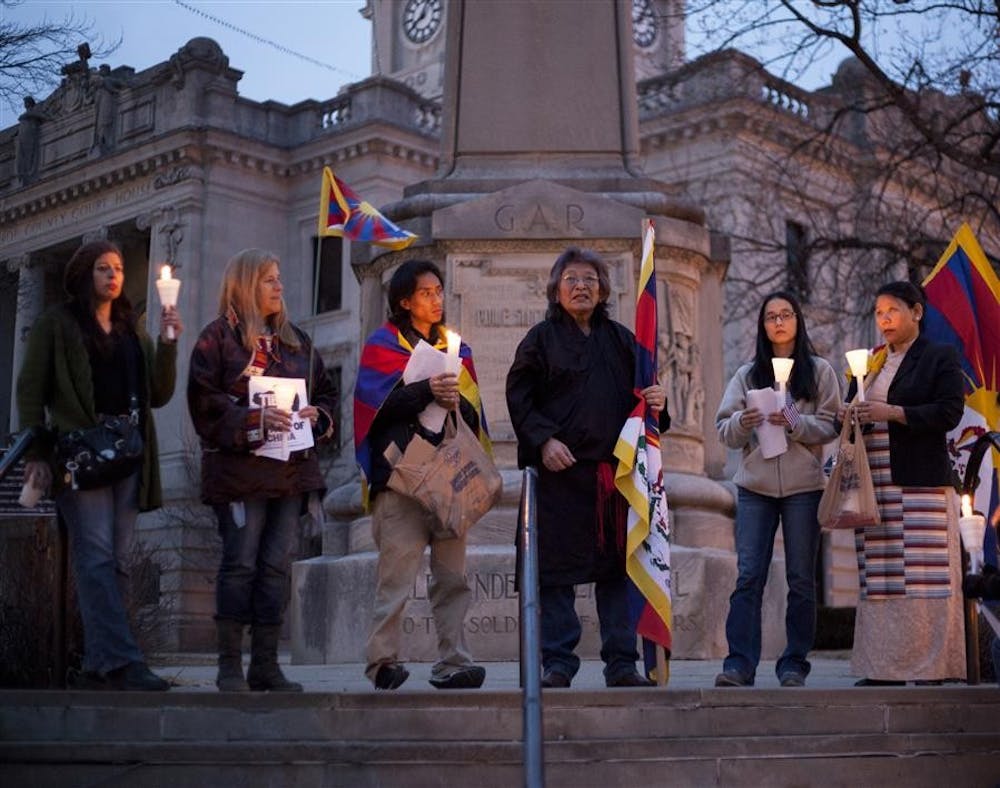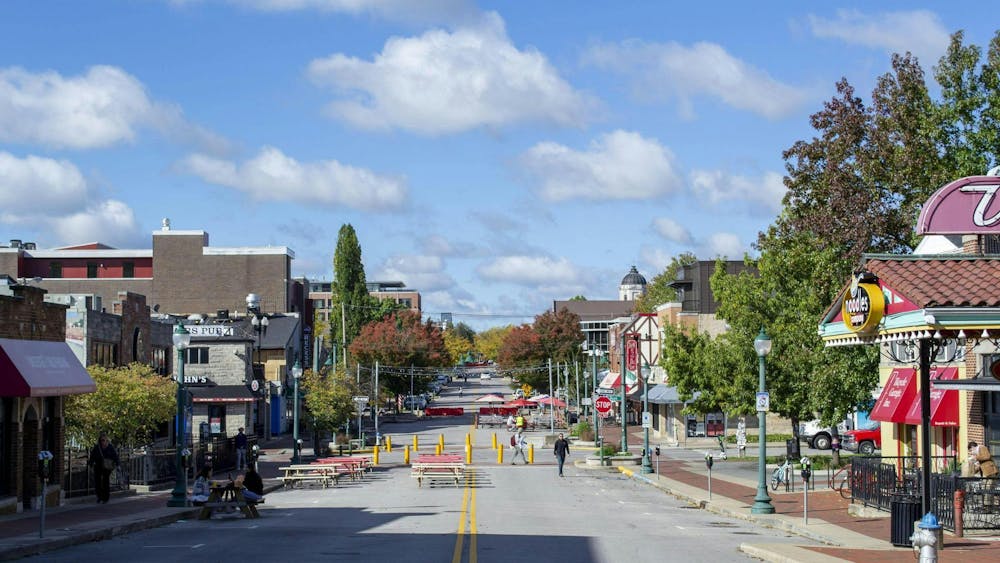Fifty-five years ago Monday, Thupten Anyetsang watched as his country erupted.
On March 10, 1959, 9-year-old Anyetsang sat in a monastery high in the Himalaya Mountains and looked down to Lhasa, capital city of Tibet and his hometown, as it began its rapid descent into chaos.
“I was a little distance, maybe a couple miles, in a monastery called Sera monastery,” Anyetsang said. “From there, looking down to Lhasa, the capital, you could see it.”
On that day, the Chinese government invited the Dalai Lama to a theatrical performance in Lhasa with the request he bring no bodyguards or security.
“When the general public heard that, they got suspicious,” Anyetsang said. “They thought he would be kidnapped ... so they surrounded the Dalai Lama’s palace, not let him go to Chinese theater. Then he snuck out one night with the help of Tibetan freedom fighters. My father was one of them.”
Nine days later, the Chinese government began to drop bombs to break up the uprising.
From his perch in the surrounding mountains, Anyetsang saw Chinese shells destroy the Tibetan capital.
More than 80,000 Tibetans were killed.
“We walk around, there’s thousands of bodies lying around, blood everywhere,” he said. “And then, curious, we went down to see it and we see bodies all over. All over.”
He fled Lhasa three days later, leaving his family behind.
He found refuge in India, living there for more than a decade before coming to the
United States, where he settled in Bloomington.
After 40 frustrating years of inactivity from world leaders about Tibet, he opened Fourth Street’s Little Tibet restaurant, which he uses as a tool for his message of Tibetan freedom.
“I wanted the general public to know. I thought the best way to educate was to have a humble restaurant,” he said. “So since we opened, lots of customers come and say, ‘Oh, what is Tibetan food?’ Then they ask about me ... So I do my best. Everything I know, our history, and let them ask questions.”
Food with a message. To remember.
That’s how he finds himself here, on the steps of the Monroe County Courthouse in Bloomington, 55 years after Tibet was torn away from him. He and 11 others stand, candles lit and Tibetan flags raised high, singing the Tibetan national anthem in unison.
Some, like Anyetsang, are native Tibetans. He estimates there are more than a dozen in Bloomington. Others, like Lisa Hilgeman, simply stand in support.
“I have been connected with Buddhism since 1999, and actually am connected to China through my father, who was born there,” she said. “I’ve had the opportunity to travel to Tibet on three different occasions after making friends with a number of Tibetans in exile.”
The group gathered at IU’s Sample Gates and marched to the courthouse, stopping to speak with curious passersby or to pass out flyers.
“I think we’re just trying to raise the message to everyone, both within the government as well as average Americans, so that they’re aware of what happened inside Tibet starting in the 1940s,” she said.
At the courthouse, against a blood-red sky that slowly faded to black, Anyetsang walked up the steps to the foot of the Alexander Memorial — dedicated “to the soldiers of all wars” — and spoke.
“Today is a very sad day,” he said, his low voice barely audible above the noise of passing cars.
“It has been 55 years since we have been in exile. Over 10 million Chinese have moved into Tibet and our people are minorities.”
He has spoken with U.S. senators, congressmen, local officials and President Obama himself, to no avail.
“I met the president here, asked for help to talk openly about Tibet, Chinese genocide of Tibet, not just statement and have sympathy,” he said of the then-senator’s campaign stop in Bloomington. “We shook hands and I said, ‘Please, help Tibet.’”
While President Obama and the Dalai Lama met at the White House Feb. 21, the U.S. does not officially support Tibetan independence.
A White House statement released that day stated, “The president reiterated his strong support for the preservation of Tibet’s unique religious, cultural and linguistic traditions and the protection of human rights for Tibetans in the People’s Republic of China.”
Anyetsang said he believes that is not enough. One-hundred twenty-nine Tibetans have self-immolated since 2008, each one an attempt for the world’s attention.
“While they’re burning themselves, it says, ‘Please, free Tibet,’” he said.
So Thupten Anyetsang, Lisa Hilgeman and their 10 companions find themselves on the steps of the Monroe Country Courthouse, singing and pleading to an audience of three. Aside from one reporter and two photographers, nobody has stopped to watch their demonstration.
Undeterred, he continued.
“We have the truth, we will one day be able to go back to our country, and His Holiness will again live in the Palace.”
When the songs had ended and the candles had been blown out, Anyetsang started down the short group of stairs to the sidewalk below. Before he reached the bottom, he turned, right hand raised and summed up the night’s objective.
“Bhod gyalo,” he said. “Victory to Tibet.”
Locals commemorate Tibetan resistance

Get stories like this in your inbox
Subscribe





